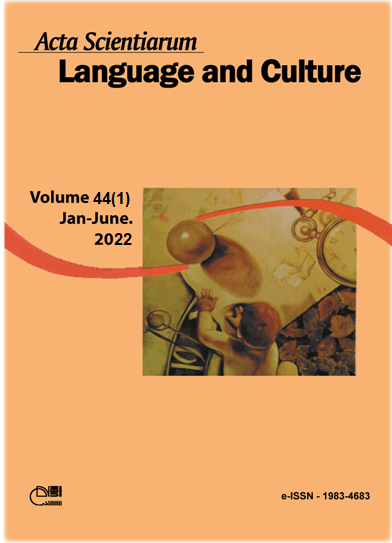The concepts of literacies underneath the activities of four skills 2 didactic book produced by teachers in initial education
Abstract
The initial teacher education must elucidate the continuous relation between theory and practice, evidencing that production of scientific knowledge must be understood as inseparable of teaching practices. However, relating theoretical and practical aspects is a complex literacy activity for teachers who are in initial process of education. Researches (Motta-Roth, 2008a) reveal the difficulties faced to transpose theories of language into the construction of approaches to teach languages and, them, into didactic materials (Nascimento, 2017). On the face of this, the present article has the objective to discuss the results obtained in the analysis of literacy concepts identified underneath the activities of a didactic unit from Four skills 2 textbook (Schiefelbein et al., 2018), produced by teachers in initial education, in an extension project of Federal University of Santa Maria (UFSM). As theoretical framework of analysis, we use the conceptions of literacy discussed by Rojo (2004), Motta-Roth (2008a) and Freire (2001), so called, literacy as: a) decodification processing; b) cognitive processing; and c) critical processing. The results indicate a higher recurrence of activities that explore literacy as critical processing (51.51%), focusing on contextual issues related to texts and their critical and reflexive aspects, followed by activities that explore the cognitive processing (48.48%), highlighted by the practice of locating and /or copying information.
Downloads
DECLARATION OF ORIGINALITY AND COPYRIGHTS
I Declare that current article is original and has not been submitted for publication, in part or in whole, to any other national or international journal.
The copyrights belong exclusively to the authors. Published content is licensed under Creative Commons Attribution 4.0 (CC BY 4.0) guidelines, which allows sharing (copy and distribution of the material in any medium or format) and adaptation (remix, transform, and build upon the material) for any purpose, even commercially, under the terms of attribution.
Read this link for further information on how to use CC BY 4.0 properly.




















6.png)









